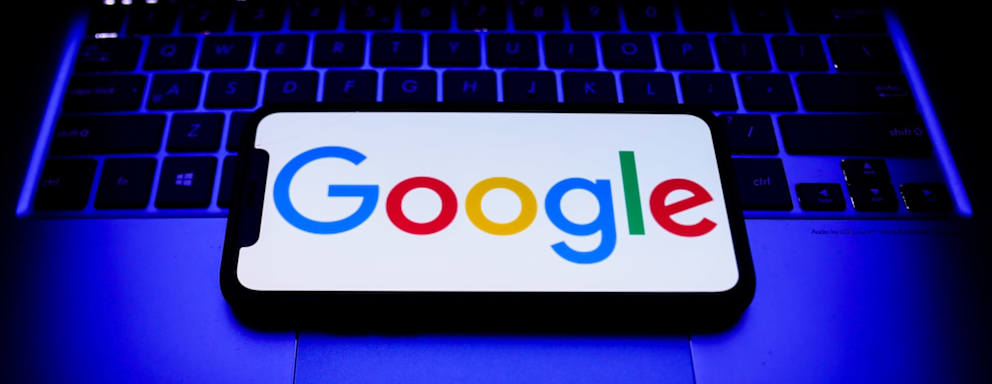Google, Microsoft Promote Tech Careers Through Community Colleges
 Credit: Feature Image: NurPhoto / Contributor / NurPhoto / Getty Images
Credit: Feature Image: NurPhoto / Contributor / NurPhoto / Getty Images- Google will offer its certificate programs to community college students for free.
- Microsoft launched a campaign to produce 250,000 cybersecurity professionals.
- “New-collar” jobs are in demand, pay well, and often don’t require a bachelor’s degree.
Last month, on consecutive days, both Google and Microsoft announced major initiatives to provide America’s community college students with free access to certificate programs in tech.
By investing in workforce development through community colleges, Google and Microsoft follow a trail blazed by IBM. The company expanded its longstanding relationship with community colleges in 2017 by collaborating on curriculum design for “next-generation IT skills” and offering more students internships and apprenticeships within the company.
These tech titans are investing in a workforce to fill “new-collar” jobs, a term coined by Ginni Rometty, IBM’s CEO. These jobs in fields such as data analytics, UX design, and cybersecurity pay well, often don’t require a bachelor’s degree, and offer an alternative pathway to career advancement. But they don’t only exist in IT; new-collar jobs are being created at companies focused on robotics, medical technology, pharmacy, dentistry, and manufacturing, which is projected to face a shortage of 2 million workers by 2025.
Community colleges provide a ready solution to the growing skills gap within America’s workforce, prompting these investments from Google, Microsoft, and IBM. As the number of new jobs that don’t require a bachelor’s degree continues to outpace the number of those that do, traditional higher education faces mounting challenges to remain relevant in today’s economy.
Google Expands Partnerships Across Higher Education
Google recently announced its three-pronged approach to expanding partnerships with colleges and universities. The first is to provide community colleges with free access to its Google Career Certificates Program through the “Grow with Google” initiative. The company’s certificate options include IT support, data analytics, project management, UX design, and Android development. Google will also extend the same program access to career and technical education high schools.
The second component involves translating Google programs into college credits. The American Council on Education recommends colleges accept up to 12 credits — the equivalent of four courses — for completed Google programs. Google notes this holds particular value for the 36 million Americans with some college credits but no degree, giving them “an affordable on-ramp back to earning their diploma.”
Google’s third tactic is to partner with four-year schools currently accepting Google credits to broaden access to jobs and increase earning potential. Such institutions include Northeastern University, Purdue University Global, Arizona State University, and colleges within the State University of New York system. Coupling a traditional degree with a skills-specific certificate can almost double starting salaries for entry-level jobs, the company claims.
“We are excited about this expansion of our Grow with Google Certificates program and the opportunity to partner with academic institutions across the U.S., including community colleges, which are critical to workforce development and economic mobility,” said Ruth Porat, CFO at Google and Alphabet, its parent company.
Students can access Google’s certificates through Coursera, an online program management provider. The programs consist of 5-8 courses, and all can be completed within six months.
Leveraging partnerships with community colleges enables Google to fulfill its mission of engineering “inclusive economic growth.” According to the College Board, more than half of the nation’s community college students identified as a race or ethnicity other than white in 2016. Google claims that of the 170,000 Americans it has helped get new jobs, 67% are from underrepresented groups.
They’re now working at more than 150 companies that accept Google credentials, including Walmart, Infosys, Verizon, and — naturally — Google.
On the same day Google issued its announcement, Connecticut officially became the first state to offer the full suite of Google Certificates across its public higher education system. Beginning next spring, Connecticut will offer a credit-bearing course incorporating Google IT Support Certification, along with non-credit options leading to certificates.
“We have employers that are looking to hire individuals with these digital skills,” said Connecticut Governor Ned Lamont, “and our community college system responded quickly by entering into a partnership with Google to ensure our colleges are ready to start equipping students with these skills so they can enter these in-demand careers that pay over $60,000.”
Microsoft Launches Campaign to Produce Cybersecurity Professionals
Google’s announcement came on the heels of similar news from Microsoft. In October, the software company launched a campaign to partner with community colleges nationwide to recruit 250,000 people into the field of cybersecurity by 2025.
On the company’s website, President and Vice Chair Brad Smith explains that Microsoft will offer its cybersecurity curriculum free to all community colleges and will provide training for new and existing faculty at 150 institutions. The company also plans to fund at least 25,000 scholarships over the next four years, supplementing financial aid for low-income students.
“We’ve entered a new international era that falls short of war, but with constant foreign cybersecurity attacks that threaten not only our businesses, but [also] our students, healthcare, and daily lives,” Smith writes.
“Until we redress the cybersecurity workforce shortage,” he continues, “we will fall short in strengthening the country’s cybersecurity protection.”
Microsoft’s efforts will address only half of that shortage. Smith notes there are 464,200 cybersecurity-related jobs in the U.S. that remain unfilled, accounting for 6% of all employment openings. These jobs, he claims, pay $105,800 annually on average and don’t require a college degree.
What’s more, the current cybersecurity workforce lacks diversity. About 82% of cybersecurity professionals are male, and 80% are white.
“We need to build a cybersecurity workforce that is both larger and more diverse,” Smith writes. “Community colleges are uniquely situated to help the country do both.”
In the long term, Microsoft promises to expand its recruitment reach to four-year colleges, as well, including historically Black colleges and universities and Hispanic-Serving Institutions.